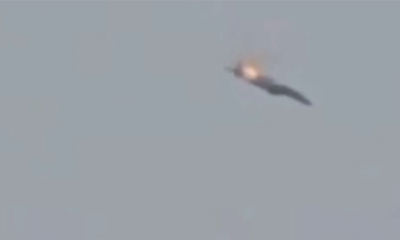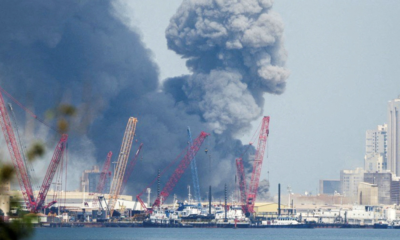Trump Presidency
Trump Rejected Israeli Assassination Plan Against Iran’s Supreme Leader, Say U.S. Officials
President Donald Trump reportedly rejected a top-level Israeli plan to assassinate Iran’s Supreme Leader Ayatollah Ali Khamenei, according to two senior U.S. officials who spoke to CNN. The revelation comes at a time of intensifying conflict between Israel and Iran, putting Trump’s reluctance to entangle the U.S. in another Middle East war back in the spotlight.
As Israeli forces launched a wave of strikes against Iranian military and nuclear assets, they reportedly informed the U.S. about an opportunity to kill Ayatollah Khamenei. However, the Trump administration opposed the plan and advised against its execution — a decision seemingly rooted in Trump’s long-standing aversion to full-scale conflict in the region.
A senior U.S. official told CNN that Trump was “eager to de-escalate” and made it clear he didn’t want America dragged into a new war, even as Republican allies pressed him for a stronger military stance.
Israel Denies Ayatollah Khamenei Report, but Trump Holds His Line
Israeli Prime Minister Benjamin Netanyahu denied the report during a Fox News interview, calling it “fake” and declining to elaborate. However, sources within the U.S. government and intelligence community maintain that the discussions and decision-making process occurred.
Trump himself said during a Sunday interview with ABC News, “We’re not involved in it. It’s possible we could get involved. But we are not at this moment involved.”
This statement aligns with his recent Truth Social post, where he warned Iran against attacking U.S. interests but emphasized that he still hoped to broker peace: “We can easily get a deal done between Iran and Israel, and end this bloody conflict!!!”
A Delicate Balance of Power and Politics
While Israel’s military operation against Iran is expected to last “weeks, not days,” Trump has remained committed to keeping the U.S. role primarily defensive. American forces have assisted with intercepting Iranian missiles targeting Israel but have avoided direct involvement in offensive operations.
Analysts say Trump’s cautious stance on the Israel-Iran conflict and Ayatollah Khamenei reflects both political and strategic calculations. He remains keenly aware of his campaign promise to avoid foreign entanglements, especially after criticizing past U.S. presidents for decades of “nation-building” in the Middle East.
Iran Supreme Leader Ayatollah Khamenei’s Hebrew X Account Suspended
Despite growing pressure from GOP hawks like Sen. Lindsey Graham, who recently advocated for “going all in for Israel,” Trump has remained consistent in avoiding escalation unless U.S. personnel or assets are attacked.
Looking Ahead: Peace Talks or Prolonged Proxy War?
Although backchannel diplomacy with Iran has stalled, including the cancellation of negotiations in Oman, Trump administration officials continue to believe that a diplomatic solution remains possible. For now, Trump’s red line appears clear: support Israel defensively, but don’t plunge into a direct war unless necessary and keep distance from any talks of the Israeli Assassination plan of Iran’s supreme leader, Ayatollah Khamenei.
Whether this strategy will hold amid rising tensions and continued calls for U.S. leadership remains to be seen. Trump’s decision to halt a potential Israeli Ayatollah Khamenei assassination plan of one of the most powerful figures in the Middle East has added a dramatic new layer to an already volatile global crisis.








































